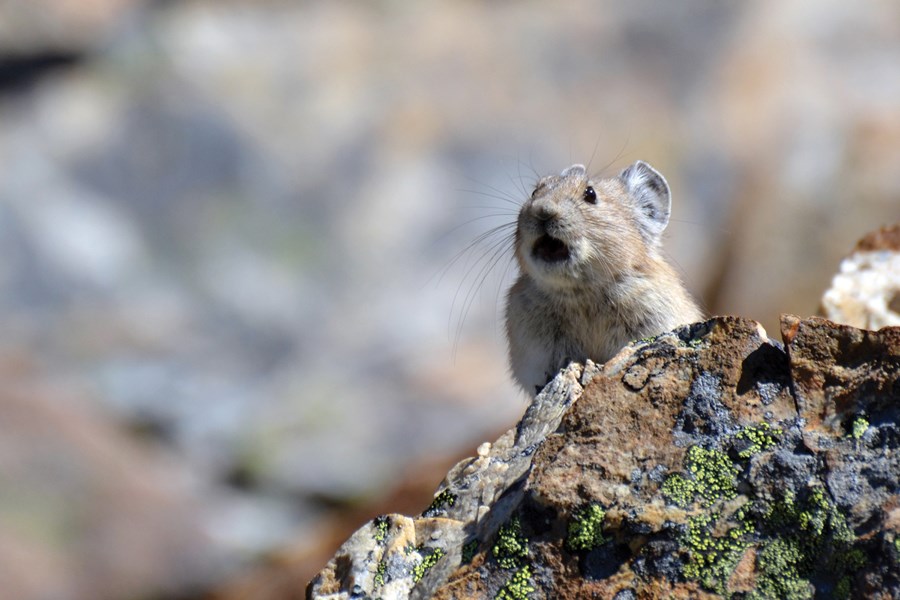A small B.C. rodent and a major UNBC study are about to be international television stars.
The American pika, a creature similar in size and features to a mouse, and Prince George instructor/researcher Philippe Henry are subjects of a BBC documentary entitled Survival.
The word applies richly to the pika in this region, thanks to climate change and the observations made by Henry in a detailed field examination of the species.
"I decided to study the American pika along BC's Coast Mountains because we have observed a six degree temperature change along an elevation gradient from sea level to 1500 metres where the pika lives," said Henry, an assistant professor of Ecosystem Science and Management at UNBC. "We know from previous studies of the pika that it is particularly sensitive to changes in temperature, which made it ideal for our study."
Would the pika move from that habitat in flux? Would stay, and if so would it die off or find a way to adapt? These were the questions in play when Henry conducted his research.
The first question was answered in short order. The pikas stayed in their familiar locations despite the warmer temperatures. So the focus shifted. Would that decision be fatal or could they adapt to global warming thus far?
"Fortunately for the little pika, it appears to have all the necessary components for evolutionary adaptation," he said. "We looked at the conditions in the environment and the frequency of certain genetic markers to see if there was any indication of local adaptation. We found signals that the creature has been adapting in its environment to climate change and that, in evolutionary terms, for the pika, this seems to be a more viable solution than moving to a more suitable environment."
Dr. Henry and his collaborators are now monitoring pika populations in Banff and Yoho National Parks and using noninvasive techniques to look at sex ratios and population sizes.
"The key for me is to have sustainable and safe interactions with wildlife as researchers," he said. "To me, there is a direct connection with this and UNBC's status as Canada's Green University."
The BBC documentary will be released later in 2014.


